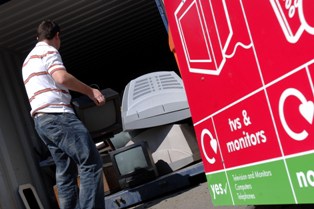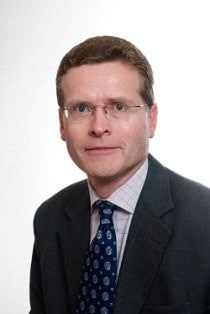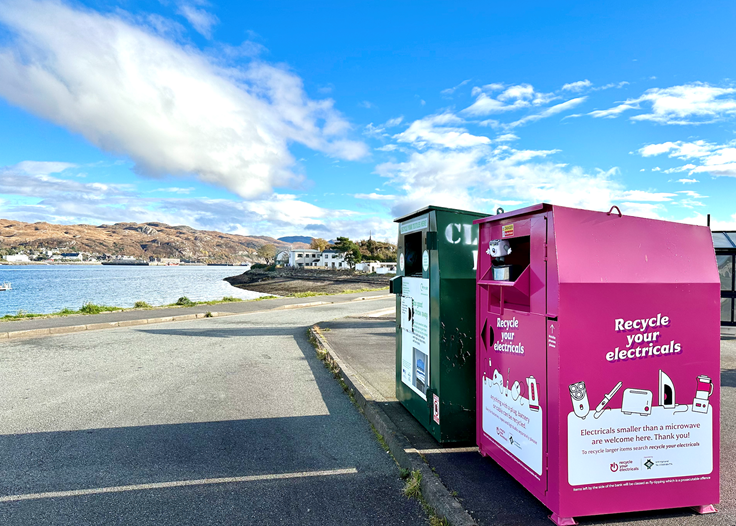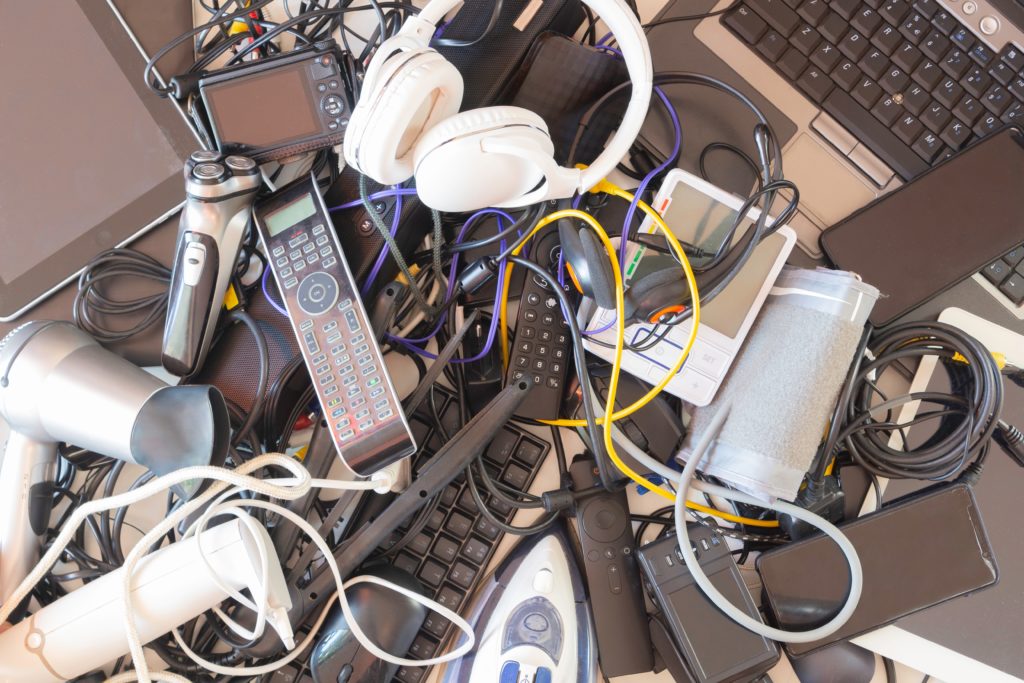Moves by councils to seek extra payments for waste electrical and electronic equipment from their civic amenity sites have alarmed producer compliance schemes and prompted the Department for Business (BIS) to send a warning letter to local authorities.

Complaints about councils demanding extra payment were taken last month to BIS by Nigel Harvey, chair of the WEEE Schemes Forum who is also chief executive of lamp compliance scheme Recolight.
The complaints centre on material from civic amenity sites which are generally registered as designated collection facilities (DCFs) for WEEE. The Forum believes some local authorities are in breach of the DCF code of practice, which sets out the obligations of local authorities and producer compliance schemes (PCSs) with regard to arrangements for the collection of WEEE.
In particular, compliance schemes are concerned that some councils are requesting payments from compliance schemes for access to WEEE when tendering for WEEE collection contracts. And, councils also stand accused of diverting some WEEE that might have a scrap value away from PCSs.
Diversion
According to the Forum, this diversion of WEEE might be into other local authority facilities or into light iron scrap where revenue is retained by the local authority.Mr Harvey, on behalf ofthe Forumsent comments regarding the DCF code of practice toBIS, stating: Frequently Large Domestic Appliances (and even Small Domestic Appliances) is added to the light iron skip instead of the relevant WEEE collection container in breach of paragraph 16 (4th bullet). Lack of available space is often given as the reason. This practice means the revenue is retained by the localauthority or possibly site operator.
Under the code of practice, local authorities as DCF operators must ensure that all separately collected household WEEE deposited at a collection site is made available to the PCS with which it has an agreed contract, without charge. The code of practice states: There must be no diversion of WEEE from the site to channels outside of those agreed by the PCS.

If a PCS is to be successful, they therefore have no choice but to agree to the proposed arrangement. This is not an agreement but coercion”
– The WEEE Schemes Forum, which ischaired by Nigel Harvey (pictured)
The code does allow for payment to pass from the compliance scheme to the council. This is as a rebate to the council linked to the scrap value of WEEE arising from the DCF as well as providing financial support for promotional campaigns with the aim of increasing WEEE recycling and other added value incentives.
And, the Forum also accuses some local authorities of coercion with regard to the way tenders are prepared and what councils say about the destination of particular WEEE streams.It told BIS: If a PCS is to be successful, they therefore have no choice but to agree to the proposed arrangement. This is not an agreement but coercion, which is in breach of paragraph 15 (bullet 5).
Cable
In the submission the Forum has also told BIS of instances where PCSs had become aware that valuable components such as cables had been removed from waste at DCFs, which has raised concerns that a significant amount of WEEE evidence treated in this way could no longer be obligated.
The submissionsaid: It might also be appropriate to point out to local authorities that decabled or partially disassembled products have already by definition been treated, and might not be regarded as obligated WEEE. Arguably, if approved authorised treatment facilities (AATFs) took this (possibly correct) approach, then WEEE collection in the UK could fall significantly.
However, in correspondence to theForum seen by letsrecycle.com, BIS states that it does not consider that WEEE collected in breach of the code would become unobligated.
BIS letter
In response to the issues raised by the Forum, a letter from BIS was sent to local authorities on Monday (February 13) reminding them of their obligations under the DCF code of practice, and warning them against any future breaches of the code.
In its letter, BIS tells local authorities that: Arrangements must be in place with a PCS in advance of sending WEEE for treatment and raising evidence. Local authorities or site contractors, including those who also operate treatment facilities, are not permitted to transport and treat WEEE independently with the aim of selling evidence.
The letter continues: You and your onsite contractors must make all separately collected WEEE deposited at DCFs available to a PCS without charge. This includes, for example, any charges to gain access to the site or asking PCS to quote a price per tonne for collection of WEEE as part of your tendering process.
BIS also reveals in its letter that it will be launching a project with the Environment Agency directed at compliance with the code of practice and other environmental permitting regulations at local authority DCFs to address incidents of leakage from the WEEE system.
Code of Practice
It is understood that the penalty for local authorities failing to comply with the code of practice is the removal of DCF approval, which would require the authority to pick up the cost of WEEE recycling itself.










Subscribe for free